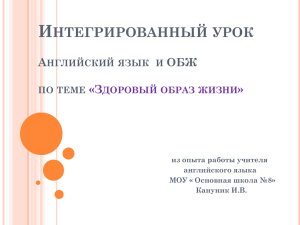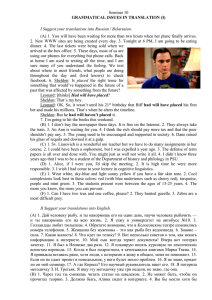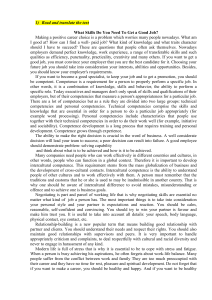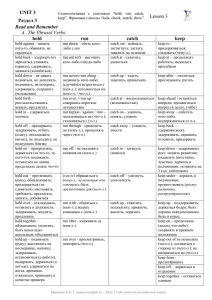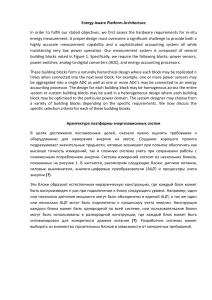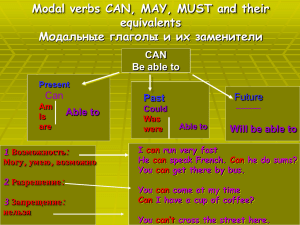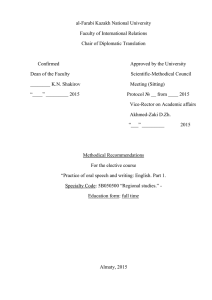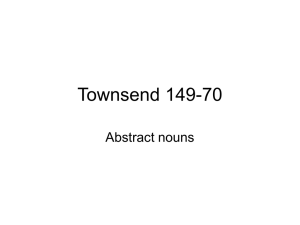10.Виконати граматичні завдання. Перетворіть розповідні речення, змінюючи пряму мову на непряму.
реклама
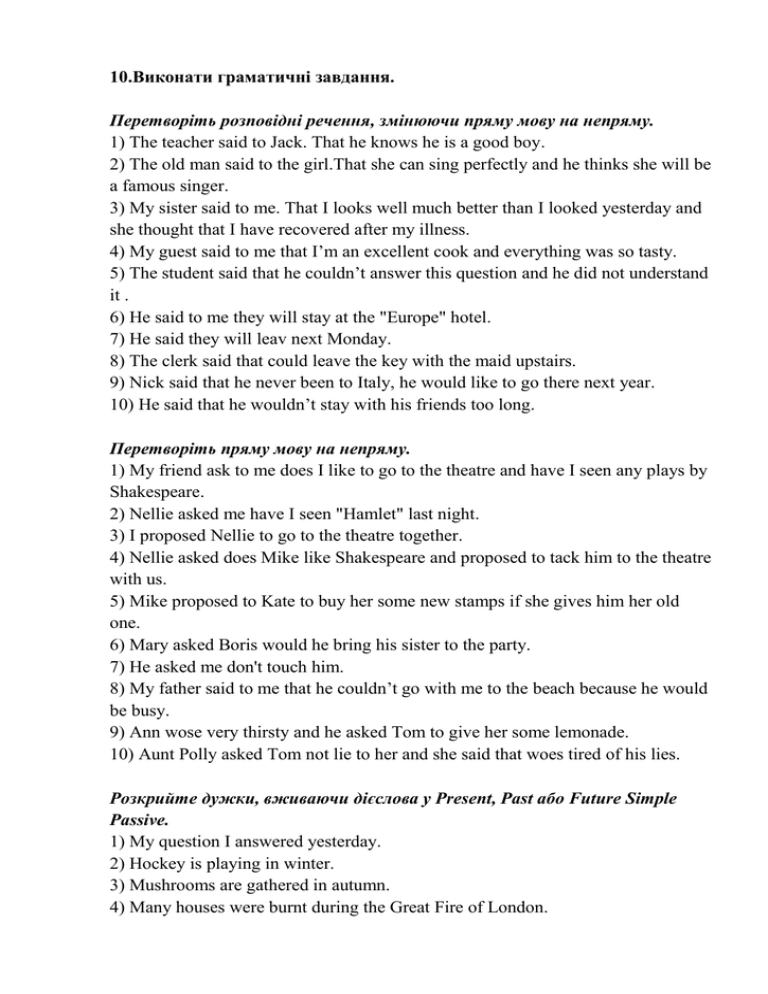
10.Виконати граматичні завдання. Перетворіть розповідні речення, змінюючи пряму мову на непряму. 1) The teacher said to Jack. That he knows he is a good boy. 2) The old man said to the girl.That she can sing perfectly and he thinks she will be a famous singer. 3) My sister said to me. That I looks well much better than I looked yesterday and she thought that I have recovered after my illness. 4) My guest said to me that I’m an excellent cook and everything was so tasty. 5) The student said that he couldn’t answer this question and he did not understand it . 6) He said to me they will stay at the "Europe" hotel. 7) He said they will leav next Monday. 8) The clerk said that could leave the key with the maid upstairs. 9) Nick said that he never been to Italy, he would like to go there next year. 10) He said that he wouldn’t stay with his friends too long. Перетворіть пряму мову на непряму. 1) My friend ask to me does I like to go to the theatre and have I seen any plays by Shakespeare. 2) Nellie asked me have I seen "Hamlet" last night. 3) I proposed Nellie to go to the theatre together. 4) Nellie asked does Mike like Shakespeare and proposed to tack him to the theatre with us. 5) Mike proposed to Kate to buy her some new stamps if she gives him her old one. 6) Mary asked Boris would he bring his sister to the party. 7) He asked me don't touch him. 8) My father said to me that he couldn’t go with me to the beach because he would be busy. 9) Ann wose very thirsty and he asked Tom to give her some lemonade. 10) Aunt Polly asked Tom not lie to her and she said that woes tired of his lies. Розкрийте дужки, вживаючи дієслова у Present, Past або Future Simple Passive. 1) My question I answered yesterday. 2) Hockey is playing in winter. 3) Mushrooms are gathered in autumn. 4) Many houses were burnt during the Great Fire of London. 5) His new book will be finished next year. 6) Flowers are selling in shops and in the streets. 7) St. Petersburg wise found in 1703. 8) Bread is eaten every day. 9) The letter had been received yesterday. 10) Nick will be send to Moscow next week. 11) I was asked at the lesson yesterday. 12) I was given a very interesting book at the library last Friday. 13) Many houses are built in our town every year. 14) This work will be done tomorrow. 15) This text will be translated at the last lesson. 16) These trees have been plant last autumn. 17) Many interesting games always playing at our PT lessons. 18) This bone I will give to my dog tomorrow. 19) We had been inviting to a concert last Saturday. 20) Lost time never finds again. 21) Rome wisent build in a day. Розкрийте дужки, вживаючи потрібну форму дієслова. 1) At the station they will be meet by a man from the travel bureau. 2) She will meet them in the hall upstairs. 3) The porter will bring your luggage to your room. 4) Your luggage will, be brought up in the lift. 5) You may leave your hat and coat in the cloakroom downstairs. 6) They can leave the key with the clerk downstairs. 7) From the station they will be taken straight to the hotel. 8) Tomorrow he will take them to the Russian Museum. Поставте речення у Passive Voice, звертаючи увагу на місце прийменника. - E.g. We often speak about her. — She is often spoken about 1) The freshman are often laughed by the senior students. 2) The group was spoken by the headmistress yesterday. 3) The babies are looked after their young mothers with great care. 4) This old house are not lived by anybody. 5) Jim had been sent by them to prepare a report this subject. 6) Our friend has been think by us all the time. 7) He will be operated by doctor in a week. 8) The pupil's parents have been sent by the teacher. 9) A newspaper has been looked for by everywhere. 10) This bed has not slept by anyone. 11) The telegram asked by neighbor. 12) The lecturer was listened by everybody attention. Поставте речення у Passive Voice. • E.g. Mother waters the flowers in the evening. — The flowers are wareted in the evening (by Mother). 1) Some of the beautiful shells was brought by Irene's husband from the south. 2) A long interview was given to the newspaper reporters by explorers. 3) You will be teacher by English Mr. Wilson. 4) I month's rest from studying for me was ordered by a doctor. 5) The book was giving to Nick for his birthday by Tom. 6) The stories have been telling to us every evening by our mother. 7) A new book of pictures would be shown by Lydia. 8) The way was showed by the boy. 9) A box of fruit will be sent to us by them. 10) They were followed by five or six small children. 11) The horses was often drive by the boys to the fields in summer. 12) The Poles was led into the thickest part of the forest by Ivan Susanin. 13) The boat was carried away by the waves. 14) The translation well be done by us in the evening. 15) The flowers are watered regularly by them. 16) This books have been promised to me by you long ago. 17) The complete set of Walter Scott's works was gaven Bessie’s by her father. 18) The house was protected by the marble pavillion. 19) The roof of the house will be painted by the boys. 20) The fence was whitewashed by Tom Sawyer. 21) The three beautiful dishes have been gaven by her daughters as a birthday present. Перепишіть кожне з поданих речень двічі, утворюючи речення нереальної умови: а) що стосуються майбутнього (II тип), Ь) що стосуються теперішнього або минулого (III тип). 1) They will all be surprised if I make such a mistake. 1.1 If I will make such a mistake they all would be surprised. 1.2 They are surprised that I make such a mistake. 2) If he doesn't come in time, shall we have to wait for him? 2.1He will not come in time so, we shall wait for him. 2.2He is late and we are waiting for him. 3) If I am not too busy, I shall go to the concert. 3.1 I shall be not too busy and I shall go to the concert. 3.2 I am not too busy and I am going to the concert. 4) If no one comes to help, we shall be obliged to do the work ourselves. 4.1 No one will come to help and we shall to do the work ourselves. 4.2 No one comes to help so we do the work ourselves. 5) If you put on your glasses, you will see better. 5.1 Will you put one your glasses to see better. 5.2 Put one your glasses to see better. 6) What shall we do if they are late? 6.1 They are late, what do we do. 6.2 What would we do if they were late. 7) Will you be very angry if we don't come? 7.1 You were very angry we didn’t come. 7.2 Will you be very angry we will not come? 8) Will he be very displeased if I don't ring him up? 8.1He will be very displeased I will not ring him up. 8.2 He was very displeased I have not rang him up. Розкрийте дужки, вживаючи дієслова у потрібній формі. 1) If he were not such an outstanding actor, he wouldn’t have so many admirers. 2) If you give me your address, I shall write you a letter. 3) If she wasn’t so absent-minded, she would be a much better student. 4) If my sister does not go to the south, we wouldn’t spend the summer in St. Petersburg together. 5) If they were not to go to Moscow last year, they would not have heard that famous musician. 6) If you don’t get tickets for the Philharmonic, we shall stay at home. 7) If you were not so careless about your health, you wouldn’t consult the doctor. 8) I should be delighted if I don’t have such a beautiful fur coat. 9) If it rains, we shall have to stay at home. 10) If he worked hard, he would have achieved great progress. 11) If it is not too cold, I will not put one on my coat. 12) 1 would write the composition long ago if you had not disturbed me. 13) If he didn’t reade so much, he would not be so clever. 14) If my friend is at home, he will tell us what to do. Розкрийте дужки, вживаючи дієслова у потрібній формі. 1) If you does not to buy coffee, we shall drink tea. 2) If he is free tomorrow, he certainly will come to our party. 3) My brother would not have missed so many lessons if he didn’t hurt his leg. 4) If my friend worked in my office, we should meet every day. 5) If you spoke English every day, you would improve your language skills. 6) If you get a "five", your mother will be happy. 7) If she returned earlier, she would have been able to see him before he left. 8) If these shoes were not too big for me, I would buy them. 9) If you ring me up, I shall tell you a secret. 10) If you were a poet, you would write beautiful poetry. 11) If he did not read so much, he wouldn’t know English literature so well. 12) If he came to our house yesterday, he would have met his friend. 13) If he doesn’t pass his examination, he will not get a scholarship. 14) If she didn’t help me, I should have been in a very difficult situation. 15) My father would have more free time if he didn’t read so many newspapers. 16) If only you had let me know, I would go there immediately. 17) If I were a famous singer, I would get a lot of flowers every day. Розкрийте дужки, вживаючи дієслова у потрібній формі. 1) If my brother is in trouble, I shall help him, of course. 2) If I don't manage to finish my report today, I will stay at home tomorrow. 3) If she were more careful about her diet, she wouldn’t be so stout. 4) You would not feel so bad if you didn’t smoke too much. 5) If he learnt the poem, he would not have got a bad mark. 6) If you gave me your dictionary for a couple of days, I would translate this text. 7) If I was a musician, I should be very happy. 8) If Barbara got up at half past eight, she would have been late for school. 9) If you had not put the cup on the edge of the table, it not got broken. 10) 1 should be very glad if he had come to my place. 11) If he lived in St. Petersburg, he would gone to the theatre with us last week, you would have enjoyed the evening. 12) You won't understand the rule if you doesn’t to the teacher. 13) If he weren't such a bookworm, he wouldn’t spend so much time sitting in the library. 14) 1 should not have bought the car if my friend wouldn’t lend me money. 15) If he did not live in St. Petersburg, be wouldn’t meet so often. 16) If he had warned me, I wouldn’t have done the work in time. Розкрийте дужки, вживаючи дієслова у потрібній формі. 1) If you had this rare book, I should gladly lend it to you. 2) The dish would have been much more tasty if she were a better cook. 3) He would never you if I hadn't reminded him to do that. 4) Your brother would be come much stronger if he took cold baths regularly 5) If he was more courageous, he would not be afraid. 6) If the fisherman had been less patient, he would not catcher so much fish. 7) If you had put the ice cream into the refrigerator, it would not have melted. 8) If you knew the result now, I would phone her immediately. 9) If you had let me know yesterday, I would have brought you my book. 10) If it snows, the children will play snowballs. 11) If I didn’t know English, I should not be able to enjoy Byron's poetry. 12) 1 shouldn’t do it if you did not ask me. 13) If men had no weapons, would ware'be possible? 14) You will never finish your work if you waste your time that. 15) If you had his telephone number, I should easily settle this matter with him. Прочитайте и переведите тексты. 1. Создание Новых Законов: Законопроекты и законы Функции Парламента: создание законов; обеспечение денег для правительства, без налогообложение; исследуя правительственную политику, правительство и расходы, обсуждая политические вопросы. Каждый год Парламент проходит сотни законов непосредственно, составляя парламентские акты. Поскольку это может быть долгим процессом, Парламент иногда принимает очень общий законы и в общем оставляет министрам, чтобы заполнить детали. Таким образом, это косвенно передает приблизительно 2000 дополнительных правил и норм. Никакой новый закон не может быть принят, если он не прошел много стадий в общей Палате и Палате лордов. Монарх также должен дать законопроекту Королевскую санкцию, которая является теперь только формальностью. С 1707 никакой правитель не отказался от законопроекта. Пока закон еще вступил в силу, хотя в Парламенте он называется законопроектом. Есть два главных типа законопроектов - Публичные законопроекты, которые имеют дело с вопросами общественной важности и Частных законопроектов, которые имеют дело с местными вопросами и людьми. Публичные и Частные законопроекты передают, в Парламент почти таким же способом. Когда Законопроект внесен на рассмотрение в общей Палате, он получает формальное первое чтение. Его тогда издают, он проходит второе чтение, где он обсуждается, но не корректируется. После второго чтения законопроект переходит в комитет, или специальный комитет, состоящий из определенных членов парламента, или к палате, которая выступает комитетом. Здесь оно обсуждается подробно и исправляется в случае необходимости. Законопроект тогда представляют в третьем чтении и обсуждают. Если Законопроект принят общей палатой, он переходит к палате лордов, и если он не отклонен ими, он переходит ту же самую процедуру как в общей палате. После получения Королевской санкции законопроект становится парламентским актом. Чтобы быть приведенным в жизнь, он должен быть издан в форме кодекса и становится частью Закона. Власть палаты лордов на отклонения законопроекта была строго запрещена. Денежный законопроект должен перейти в палату лордов без поправок в течение месяца для того, чтобы быть представленным в палате. Закон 1949 обеспечивает, что любой Публичный законопроект, который передается в общую палату на двух последовательных парламентских сессиях и, отклонён оба раза палатой лордов, может быть представлен для Королевской санкции, даже при том, что он не передан в палату лордов. Палата лордов, исходя из этого, может только задержать проход Публичного законопроекта, они не могут отклонить его. 2. Судовая система Англии и Уэльса (Судебная система Англии и Уэльса) Наиболее распространенный тип суда в Англии и Уэльсе - мировой суд. Есть 700 мировых судов и приблизительно 30000 судей Более серьезные уголовные дела тогда переходят в Королевский суд, у которого есть 90 отделений в различных пригородах и городах. С гражданскими делами (например, развод или случаи банкротства) имеют дело в Окружных судах. Апелляции слушают более высокие суды. Например, апелляции от мировых судов слушают в Королевском суде, если они не касаются вопросов права. Высшая судебная инстанция является в Англии и Уэльсе - Палата лордов. (У Шотландии есть свой собственный Высокий суд в Эдинбурге, который слушает все апелляции от шотландских судов.) Определенные случаи могут быть отнесены в Европейский суд в Люксембурге. Кроме того, некоторые вносили изменения в работу британского правительства в нескольких областях в результате петиции к Европейский Суд по правам человека. Правовая система также включает суды по делам несовершеннолетних (которые имеют дело с преступниками до семнадцати), и суды коронеров (которые исследуют сильные, внезапные или неестественные смертельные случаи). Есть административные трибуналы, которые принимают быстрые, дешевые и справедливые решения с намного меньшим количеством формальности. Трибуналы имеют дело с профессиональными стандартами, спорами между людьми, и спорами между людьми и ведомствами (например, по налогообложению). 3. Члены парламента в Великобритании Каждый Член парламента (член парламента) представляет один из 650 избирательных округов в Великобритании. На британских выборах обычно борются между политическими партиями, не людьми. Поэтому, люди, которые хотят быть избранными в Парламент, должны быть назначены одной из главных политических партий. Нет ничего, чтобы мешать нетрадиционным кандидатам баллотироваться на выборах, как бы то ни было. Кандидат должен только сделать депозит 500 фунтов, собирают десять подписей от жителей в избирательном округе, где он хочет балатироваться. Кандидат, который получает меньше чем 5 процентов полных голосов, теряет свой депозит. Для кого-то, кто баллотируется на выборах в целях гласности, это - маленькая цена, чтобы заплатить. Хотя члены парламента могут поддерживать любую операцию, ими не управляет та политическая партия и теоретически не должны голосовать на их стороне в Парламенте. Члены парламента представляют всех в избирательном округе, не только тех, которые голосовали за них. Большая работа членов парламента не имеет никакого отношения к голосованию в Парламенте. Есть сотня вещей, с которыми должны иметь дело члены парламента в ежедневной работе и делах избирательного округа, такой как жилье или здравоохранение. ЧП должны помогать людям и попытаться удостовериться, что их права в соответствии с законом не нарушены. Некоторые члены парламента держат бюро в своих избирательных округах, куда люди могут пойти для совета. Любой, кто чувствует, что его осудили в не соответствии с законном рассматривало центральное правительство, может жаловаться их местному члену парламента, который приложит все усилия, чтобы его проблема была решена. Членам парламента начали платить зарплаты с 1911. Ставка в последнее время была почти дважды больше средней заработной платой промышленных рабочих. С 1965 выделяли командировочные на протяжение в Лондоне, и оплата частично занятым секретарям и научным сотрудникам, были все увеличены. Все еще много членов парламента настаивают, чтобы у них был дополнительный доход, чтобы позволить им соответствовать стандарту, который они ожидают, хотя журналистика, работайте в судах по делу,

